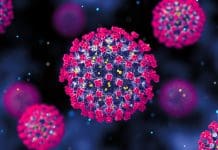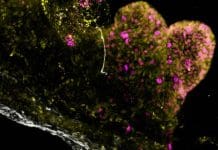Monash University researchers develop Entelli-02, a precision phage therapy cocktail effective against multidrug-resistant Enterobacter cloacae complex, offering a new weapon against antimicrobial-resistant infections
Researchers at Monash University and The Alfred have developed Entelli-02, a five-phage therapy specifically designed to combat antibiotic-resistant Enterobacter cloacae complex, a significant cause of hospital-acquired infections. This breakthrough could provide a targeted solution in the global fight against antimicrobial resistance (AMR).
The findings are published in Nature Microbiology.
The first phage therapy to target AMR pathogens
Infections caused by Enterobacter species are particularly difficult to manage and have been associated with more than 200,000 fatalities worldwide in 2019 alone. These infections frequently occur within hospital settings worldwide, presenting a significant challenge for healthcare providers. Enterobacter has a notorious capacity to acquire resistance to many of the last-resort antibiotics, complicating treatment options and increasing the risk of severe outcomes for patients.
“This is the first time we’ve designed and developed a clinical-ready phage therapy product tailored to an AMR bacterial pathogen at a local hospital,” said Professor Jeremy J. Barr, senior author of the study. “Entelli-02 is not just a scientific achievement, it’s a clinical tool built for frontline use against deadly, drug-resistant, bacterial pathogens.”
Phage therapy is a treatment that uses bacteriophages, the viruses that specifically target and kill bacteria, to treat bacterial infections. Antibiotics kill both harmful and beneficial bacteria; however, phage therapy is highly selective, targeting only bacteria that cause infections.
The lead author, Dr Dinesh Subedi, described the painstaking process the research team undertook to develop Entelli-02, involving rigorous phage isolation, genetics, and preclinical testing.
“We initially began with three phages in our cocktail, but through iterative design, we improved the cocktail by genetically adapting the viruses to expand their host range, followed by selection of two additional phages with improved treatment outcomes,” Dr Subedi said.
“The final product, Entelli-02, contains five phages that can kill a broad range of Enterobacter isolates and reduce bacterial loads in infected mice by over 99 per cent.”
Entelli-02: New target for hospital superbugs
Entelli-02 was produced as a therapeutic-grade phage product at the Monash Phage Foundry, adhering to sterility and safety standards for intravenous use under Australia’s Therapeutic Goods Administration Special Access Scheme. It is now available for compassionate use, paving the way for future clinical trials involving phage products. The team is optimistic that this hospital-specific phage cocktail model can be replicated in other hospitals confronting similar antibiotic resistance (AMR) challenges.
“This is a blueprint for how hospitals can respond to AMR outbreaks with precision therapies,” Professor Barr said.
Professor Peleg said: “We’re bridging the gap between broad-spectrum antimicrobial treatments and personalised phage therapy to deliver a ready-to-use solution that’s both targeted and scalable. We are now ready with an off-the-shelf product to promptly support the treatment of some of our most difficult infections”.
“Antibiotic resistance is one of the biggest challenges in modern medicine,” Professor Barr said. “With Entelli-02, we’re showing that phage therapy can be precise, powerful, and ready for clinical deployment.”








